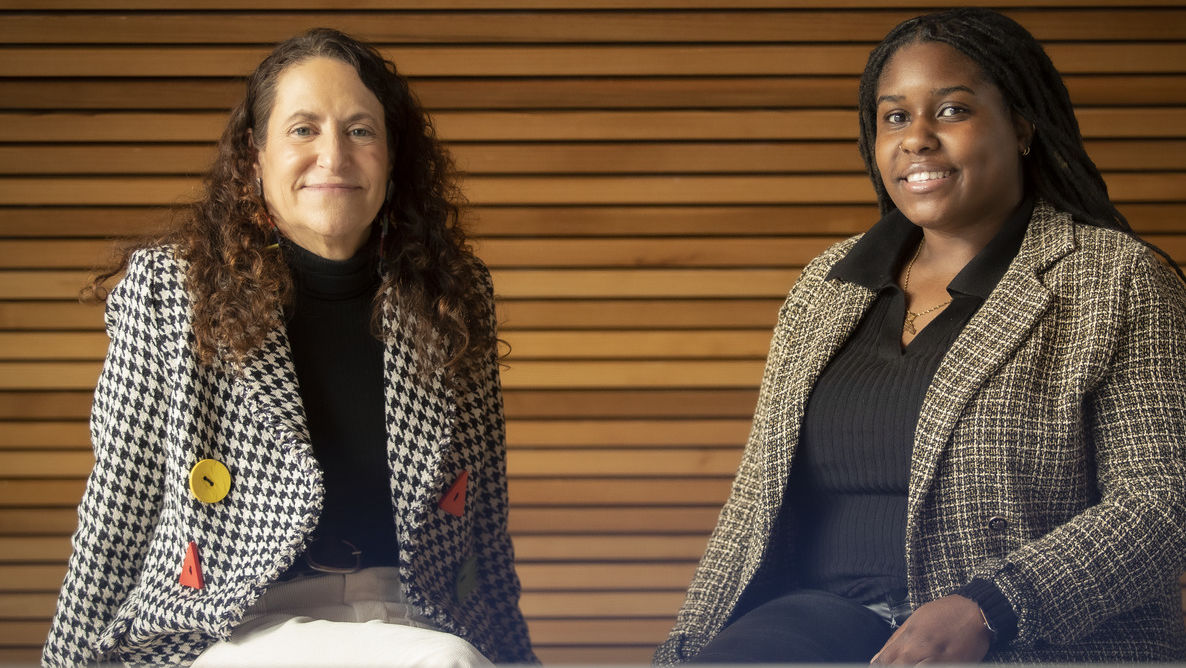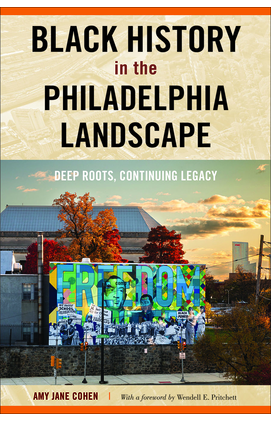Temple hosts conversation on new book highlighting Philadelphia’s Black history
Author Amy Jane Cohen and Temple University graduate student Carrilee Bryan discussed the book Black History in the Philadelphia Landscape: Deep Roots, Continuing Legacy during an event at the Charles Library.

After years of researching Black history as both an educator and historian, Amy Jane Cohen was spurred to become a book author.
“I had the idea of turning what I learned over 20 years into a book,” Cohen said.” I had some trepidation as a white person entering Black history space, but I channeled Toni Morrison who says, ‘If there is a book you want to read and it hasn’t been written yet, then you must write it.’”
So she wrote Black History in the Philadelphia Landscape: Deep Roots, Continuing Legacy, which was recently published by Temple University Press. The book chronicles aspects of the Black experience in Philadelphia from the late 1600s to the 1960s.
Cohen spoke about her new book during an event held Feb. 26 at the Charles Library. She was joined by Carrilee Bryan, a Temple University PhD history student who moderated the discussion.
“Amy’s work, time and dedication to uncovering, and in many ways repairing, the legacy of Philadelphia’s Black roots and organization in this book carries the ability to transform how we as readers and residents think, remember and commemorate Black Philadelphia,” Bryan said.
Cohen’s interest in the subject stems from her years as a social studies teacher. When the School District of Philadelphia issued a mandate in 2005 making African American history a graduation requirement, Cohen volunteered to teach the course at Masterman High School.
After she left teaching in 2013, Cohen worked for a local documentary film company, became a contributing writer for Hidden City Philadelphia and learned more about Philadelphia’s Black history.
“I continued to learn and write more about local Black history and what I found was not only was the information compelling to me in terms of how I understand my hometown, but other people were really hungry for this information as well,” Cohen said, reflecting on what inspired her to work on this project.
She provided an overview of the book’s thesis.
“The book’s argument and thesis is really that the landscape reflects collectively our values and our understanding of history and that the landscape changes as our interpretations of history change,” Cohen said. “We all know that history is not the past. It’s interpretations of the past.”
Cohen book, which features 19 chapters, also addresses topics such as historian Charles Blockson’s efforts to commemorate the Pennsylvania slave trade with a historical marker; the 1967 student walkout and Richard Allen, founder of Mother Bethel AME Church.
For Bryan, the book has been helpful as she writes her dissertation on the 1967 student walkout, during which over 3,000 Philadelphia students protested racial injustice in the Philadelphia public school system by walking out of class and gathering in the courtyard of the Board of Education Building.
“I think it’s an important text not just because of the information that it offers but because of how personal it is,” Bryan said in an interview. “It’s not just a historical work, but it’s like a memoir.”
One major lesson that Cohen hopes readers will take away from the book is the importance of Philadelphia’s historical markers and murals.
“They’re not going to correct injustices of the past,” she said. “They’re not going to ensure a more equal future, but they really matter.”